Nissan is seeking businesses to participate in a large-scale vehicle-to-grid (V2G) charging trial, which will test how storing and sharing electricity in fleet vehicles’ batteries can support the UK grid and save businesses money.
The project, to be run in partnership with electricity supplier E.ON at Nissan's European Technical Centre in Cranfield, Bedfordshire, will use Nissan e-NV200s, Nissan Leafs and 20 recently installed V2G chargers.
Businesses must purchase a V2G charger to take part in the trial. However, these are available at a heavily subsidised price through grants from Innovate UK.
Nissan said that these most recent trials move it “a step closer” to bringing V2G charging to market.
V2G (also known as bi-directional charging) allows electricity to flow both to and from EVs, which means that energy can be stored in the battery and then sold back to the grid when demand for power is high.
By charging when demand is lower or renewable power is high, Nissan claims V2G reduces reliance on fossil fuels and reduces CO2 emissions.
Nissan fleet director Peter McDonald said: “We know many fleets aren't just looking at electric vehicle acquisition, they're also reviewing their energy infrastructure for a world where electric vehicles are fast becoming the norm.
"Nissan is collaborating with E.ON on this exciting energy infrastructure project to expedite V2G technology in the UK. Thanks to the Leaf and e-NV200 being V2G-capable, these EVs are well set for the future.”
Nissan is one of several manufacturers exploring V2G charging. Audi has recently begun working on bi-directional charging and Renault adapted a fleet of Zoes for it last year, introducing 15 across Europe.
READ MORE
Audi developing vehicle-to-grid charging system for EVs
Renault scheme transforms EVs into energy storage units
Nissan to expand bi-directional charging scheme with UK project

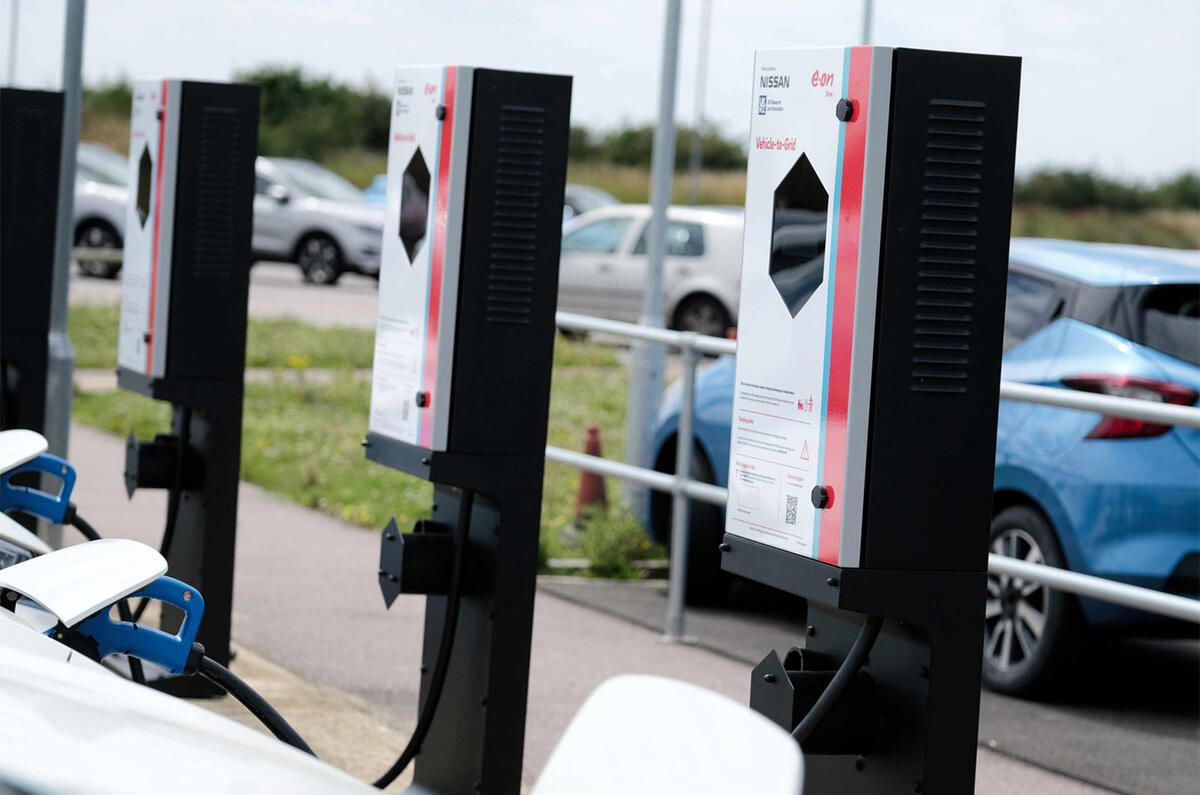
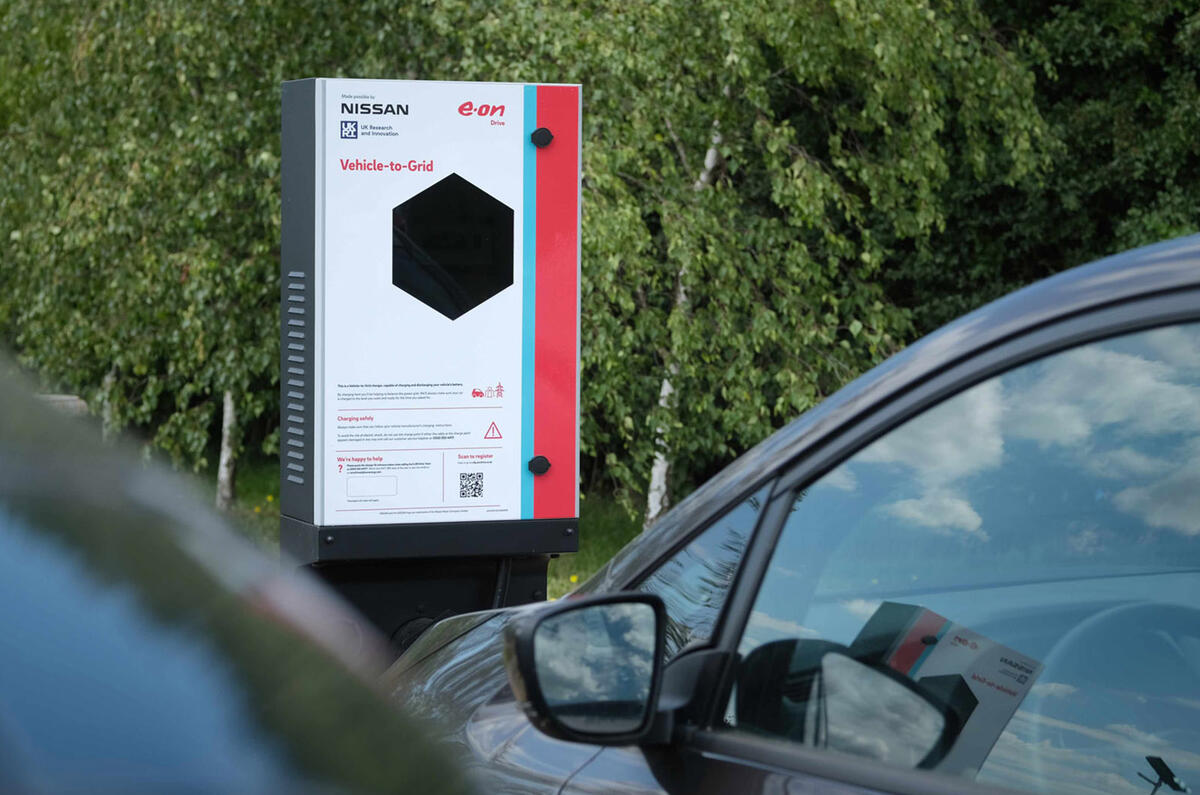
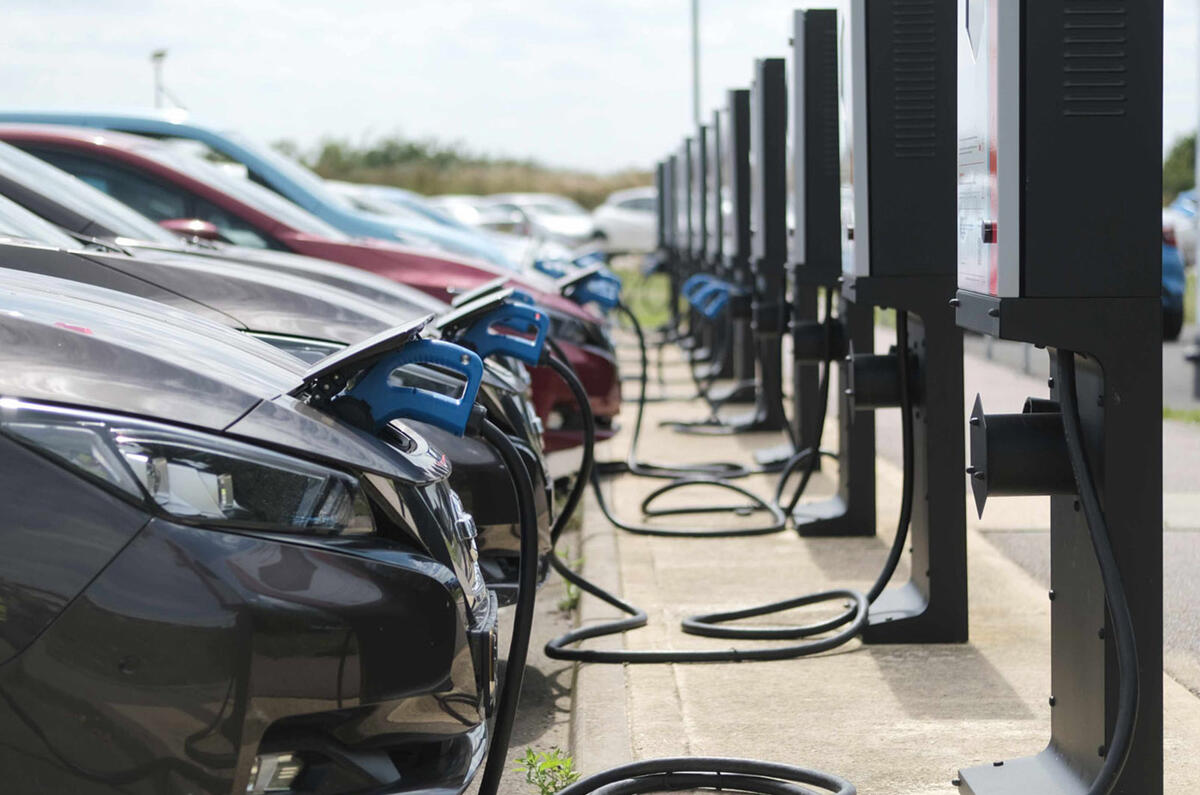
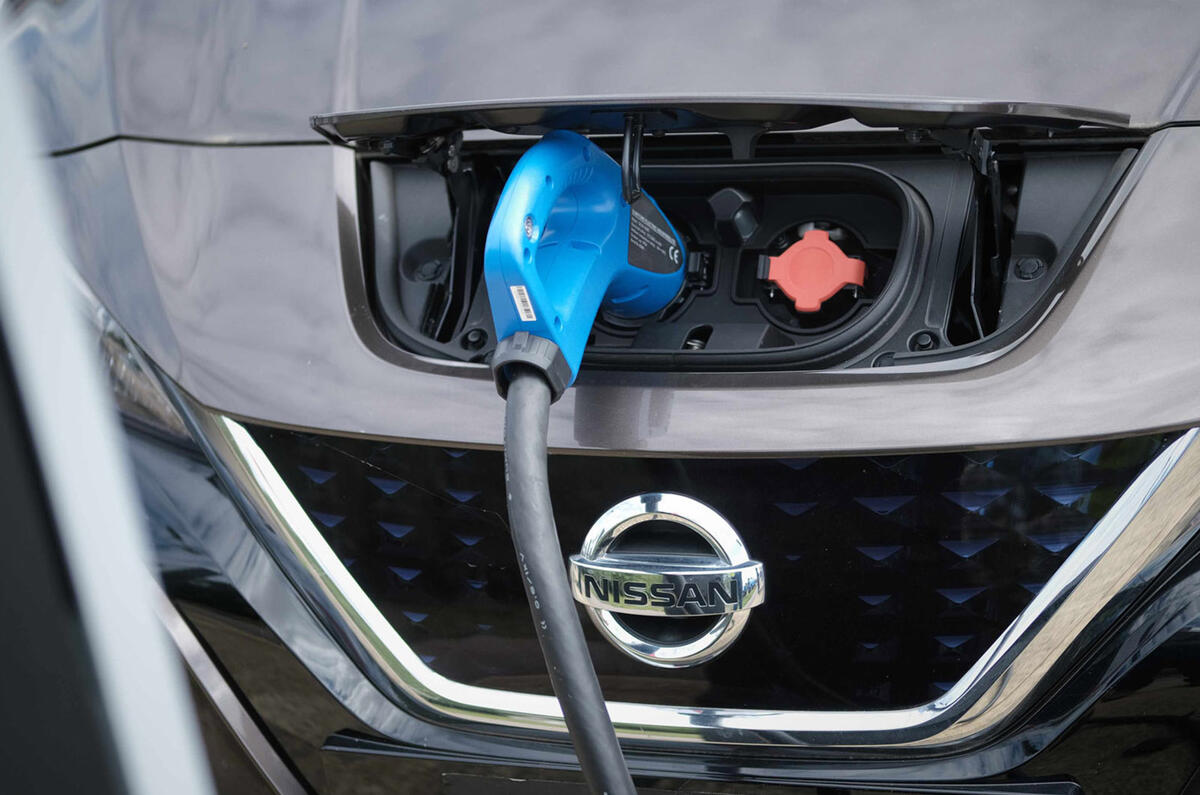
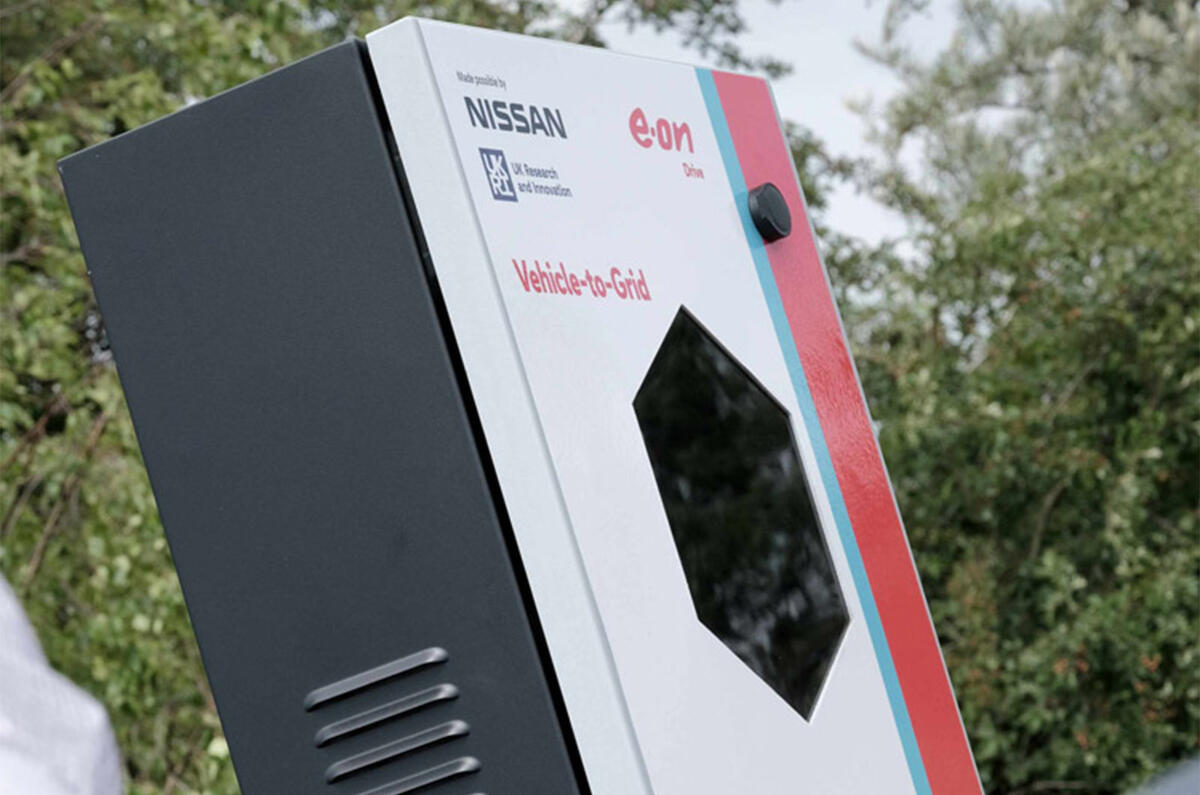
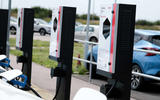
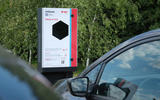
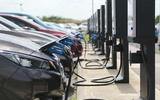
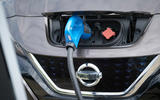
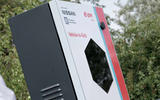


Join the debate
Add your comment
No need to estimate the
No need to estimate the efficiency figures. They're already out there. And around 85-90% for lithium based batteries.
Yeah, it could work
I suppose so, minus the double efficiency losses it'll be feasible, I estimate only being able (re-harvest?) around 40 percent of the original energy spent charging the vehicle in the first place. Putting the excess AC energy, rectified then dumped into (large underground?) super capacitors would be a much better than putting large currents (which itself incurs I2R losses) through ac-dc then dc-ac. What would be a better idea is to simply shut down generation when it's not required instead of wasting it because you think that battery charging etc is of utopian efficiency. It might be even less efficient than ICE if it was standardized. Still I'm optimistic.
405line wrote:
Why waste the free renewable energy while its available, always best to store it and use it later so you don't have to burn fossil fuel to make energy when needed. EV batteries are a resource that should be made use of so it has a function when not being driven. It makes more sense when there are millions of EVs available but you have to start somewhere while you test the idea.